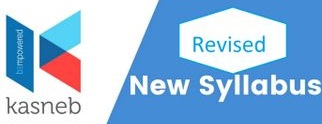In relation to the law governing Negotiable Instruments, explain four types of endorsements that may be made on a Bill of Exchange
ANSWER
• Blank endorsement
Section 34 (1) of the Bill of Exchange Act provides that an endorsement in blank specifies no endorsee. Its effects is to convert the order bill into a bearer bill.
• Special endorsement
A special endorsement is an endorsement which specifies the person to whom, or to order, the bill is to be payable. Sec 34 (4) provides that when a bill has been endorsed in blank any holder may convert the blank endorsement into a special endorsement writing above the endorsee‟s signature a direction to pay the bill to the order of himself or some other person.
• Restrictive endorsement
An endorsement is restrictive which prohibits further negotiation of the bill e.g. a bill endorsed “pay x only” or “pay x for the account of Y.” This gives the right to the endorseeto claim payment on the bill but prohibits him from transferring the right of payment to anyone else.
• Conditional endorsement
Section 33 of the Act provides that where a bill purports to be endorsed conditionally, the condition may be disregarded the payer, and payment to the endorsee is valid whether the condition has been fulfilled or not.
